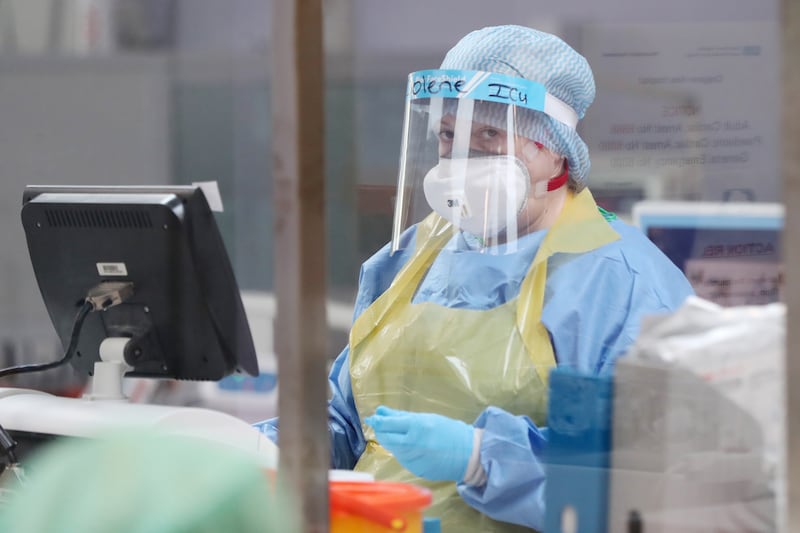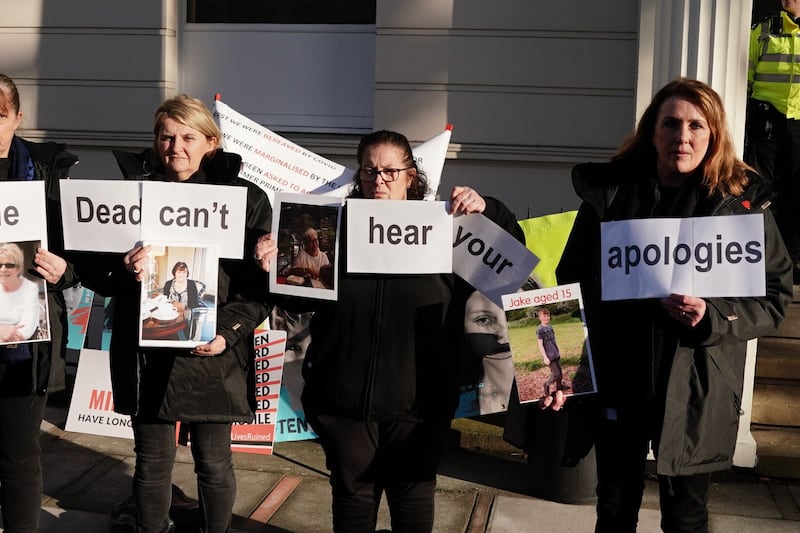The chairwoman of the Covid-19 inquiry has been accused of a “U-turn” over the probe’s examination of how the pandemic affected mental health.
Charities including Mind and Rethink Mental Illness have joined forces with the Centre for Mental Health, the Association of Mental Health Providers and other groups to urge Baroness Hallett to think again about how the issue will be dealt with by the inquiry.
They say the lack of focus on mental health “risks failing” millions of people with pre-existing illness, alongside those who sought help during the pandemic but were “turned away”.
Terms of reference for the inquiry said it would look at “the impact on the mental health and wellbeing of the population, including but not limited to those who were harmed significantly by the pandemic” and “the impact on the mental health and wellbeing of the bereaved”.
Mind submitted to Baroness Hallett that Module 3 “should consider the impact of the pandemic on wider mental health services” and not just look at inpatient psychiatric care for children, as has been planned.
Baroness Hallett said she would “give this submission further consideration”, including which area or module of the inquiry’s work “is best placed to examine these matters”.
However, she has since ruled that “Module 3 cannot include the issue of the impact of the pandemic on adult mental health services within its broad provisional outline of scope and the hearing time available”.
She said she will ensure the impact on mental health is covered by other modules and through the inquiry’s wider listening exercise.
In an open letter calling for Baroness Hallett and inquiry staff to think again, the charities and groups said: “The Covid-19 Inquiry’s refusal to examine the mental health consequences of the pandemic risks failing the people with pre-existing mental health conditions who died at five times the rate of the general population.
“It risks failing the eight million people who sought help with their mental health and were turned away.
“And it risks failing future generations by not allowing a proper examination of what can be done better in the event of another pandemic.”
The letter, shared exclusively with the PA news agency, has also been signed by the British Psychological Society, Federation of Ethnic Minority Healthcare Organisations, Family Action, the Race Equality Foundation, Group B Strep Support, the Lullaby Trust, the Miscarriage Association, Tommy’s and the Association of Mental Health Providers Leads Network.
The letter went on: “Despite positive indications from the last Module 3 hearing that mental health would now be fully considered by the inquiry, we are deeply disappointed by this U-turn.
“The exceptionally narrow focus on the few inpatient beds that are provided to children and young people means serious questions will not be answered.
“These questions include: Why was there no public mental health plan? Why did those with pre-existing mental health conditions die at five times the rate of the general population? What help was given to our frontline staff? Why were the psychiatric hospitals emptied at the same time that community care was shut down?
“The inquiry was set up to examine the UK’s response to and impact of the Covid-19 pandemic and learn lessons for the future.
“It cannot do this without an in-depth examination of both the physical and mental health consequences of the pandemic. It must urgently reconsider its position.”
Rheian Davies, head of legal at Mind, told PA the inquiry needs to “look at what happened to the nation’s mental health and what political decisions – or mistakes – were made that we wouldn’t make again.
“For example, almost a quarter of the psychiatric beds were emptied out and, at the same time, community services were virtually shut down.
“So, people were released who wouldn’t have normally been discharged, or would have been discharged with quite heavy community input.
“What they went into was nothing or next to nothing…
“Even people who rely on monthly injections of antipsychotics to stay well were missing those injections, missing that support.
“These are serious questions that the inquiry should be grappling with. Would we do that again? Is there anything to be learned from that?
“So, we’ve gone from what looks like a promising situation back to nothing again and she (Baroness Hallett) has said ‘We don’t have time’, which we actually don’t agree with.”
A spokesman for the inquiry said: “The chair, Baroness Hallett, has explained that the inquiry will cover the pandemic’s impact on the mental health of the population throughout our investigations, including Module 3, as well as our UK-wide listening exercise, Every Story Matters.
“Public hearings for Module 3, investigating the impact of the pandemic on the UK’s healthcare systems, will start in September 2024. They will include consideration of inpatient Children and Adolescent Mental Health Services – now referred to as Children and Young People’s Mental Health Services. Other module hearings are scheduled to run until 2026.”
It comes as the Centre for Mental Health said the mental health workforce needs to keep growing over the next decade to meet rising levels of demand.
Chief executive Andy Bell said the workforce also needs to diversify and offer people a wider range of opportunities to work in mental health.









